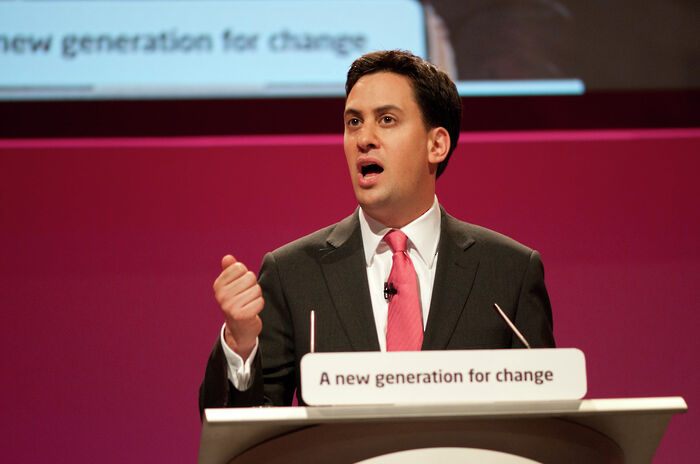We cannot excuse Corbyn’s failures on antisemitism
In the midst of an ongoing debate about antisemitism, Esther Raffell argues that Corbyn must address the imperfections of himself, and his party, to create a truly inclusive movement

During the last few weeks, the tone of the backlash from Labour members and supporters, dismissing accusations of antisemitism, has crystallised the very heart of the problem.
From my perspective as a Jewish woman on the left, many of my friends and I have been on the receiving end of an argument which positions us, Jews, as some kind of enemy, other, alien, to this party (whether supporters of Labour or not). Rather than treating anti-semitism and its inevitable weaponisation by the right (not to mention its absurd press dominance) as a substantive issue to be interrogated and managed, it’s Jews themselves, as a monolithic group, who have become the problem.
“I want Labour’s leadership to admit that it’s possible, and in fact very common, to get things wrong”
This depiction and its political purchase is no coincidence. They are derived from a trope that we know very well: a historically situated understanding of Jewish people as ‘cosmopolitan’ (i.e. outsider, enemy), greedy, and self serving. This depiction has had catastrophic consequences. Nor is the decision to view Jews as responsible for dissent, disunity, and media bias against the left an inevitable one.
Left-wing organisations are consistently vulnerable to tearing themselves apart – a result of our self-professed values. Believing in diversity, inclusion and liberation means developing the tools to manage conflict, disagreement and adaptation for the sake of broader coalition. So, while the issues raised during the current debate around antisemitism are highly particular, the false opposition of ‘fragmentation’ and ‘political unity’ constructed by many on the left is all too familiar.
An entire new party developed in the political rubble of Labour’s disagreement during Thatcher’s premiership. Now, Corbyn’s ambivalence towards the European Union has reignited conflict between ‘lexiters’ and ‘remainers’, and it would take far more words than I have here to recount the labour of women and people of colour staking a legitimate place for themselves within white-male dominated left-wing circles (including the Labour Party).
Throughout these conflicts, the fragmentation and reputation of the party are posited as reasons to resist self-reflection and to silence the marginalised. These divisions have taken particular paths, encountered specific obstacles, and are by no means at an end. Ultimately, they all form part of a left-wing framework which has always grappled simultaneously with division and unity, and whose success or failure rides not on whether anti-semitism figures as part of this discussion, but on how our leadership choose to understand and manage it.
To dismiss Jewish concerns throughout this discussion, vehement supporters of Corbyn have consistently claimed he is an ‘anti-racist’ leader with a powerful reputation for liberation. I believe this to be true. I also believe that there is no powerful history of anti-racism or liberation politics that guarantees or was built on perfection. In fact, from my observations, it’s the very insistence that anyone – let alone Jeremy Corbyn – can practice a politics of perfection, which drives supporters to protect his name from ‘smear’ at the cost of Jews’ real, lived experiences. Having an ‘anti-racist’ reputation does not sanctify your name in the Church of Social Justice. In fact, it should make you listen even harder.
What I’d really like to see from Jeremy Corbyn – the innovative, anti-racist, and oppositional politician who has galvanised a real chunk of disengaged young people – is a willingness to admit his own imperfections and contradictions, even to his most ardent supporters.
I want him to tell those people calling my friends ‘zios’ and ‘enemies’ not to follow him or protect him, and to think twice before they assume that being ‘anti-racist’ makes anyone immune to criticism or self-reflection.
I want him to educate himself further on the particularities of antisemitism and to call on organisations like Momentum – as well as everyone else involved in the leadership of our party – to listen to Jewish people as a coalition of ethnicities and socio-economic backgrounds rather than a monolith.
I want him to admit to, and initiate a conversation about, the contradictions and possibilities that exist in working with people who come down on multiple sides in the Arab-Israeli conflict, just as he works with the right of the parliamentary Labour Party every day.
This list could and should be a lot longer, but ultimately, I want Labour’s leadership to admit that it’s possible, and in fact very common, to get things wrong.
Being fully intersectional and inclusive means shedding the arrogance of believing that you’re always doing it right. As soon as you believe that, you stop listening. As soon as you stop listening, you start excluding.
 News / Uni Scout and Guide Club affirms trans inclusion 12 December 2025
News / Uni Scout and Guide Club affirms trans inclusion 12 December 2025 News / Cambridge study finds students learn better with notes than AI13 December 2025
News / Cambridge study finds students learn better with notes than AI13 December 2025 News / Cambridge Vet School gets lifeline year to stay accredited28 November 2025
News / Cambridge Vet School gets lifeline year to stay accredited28 November 2025 Science / Did your ex trip on King’s Parade? The science behind the ‘ick’12 December 2025
Science / Did your ex trip on King’s Parade? The science behind the ‘ick’12 December 2025 News / Pembroke to convert listed office building into accom9 December 2025
News / Pembroke to convert listed office building into accom9 December 2025









